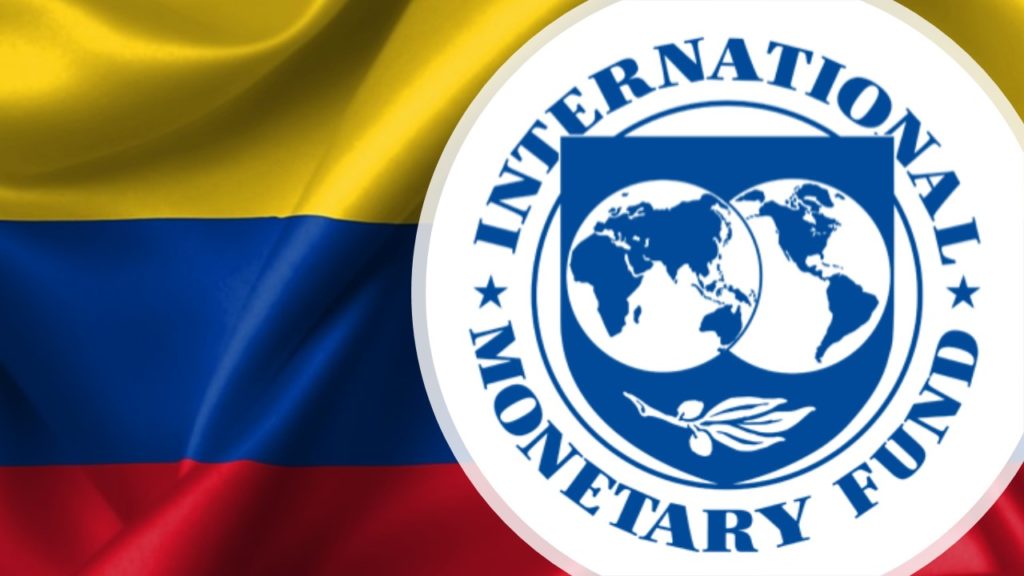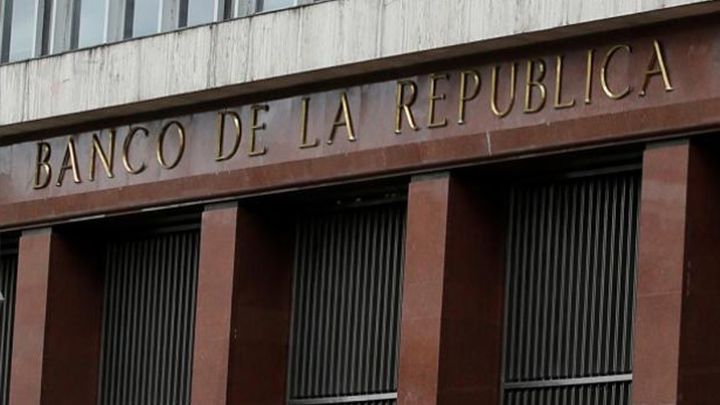
The International Monetary Fund (IMF) recommends that Colombia reduce expenses, favor investment, and lower interest rates “with caution”. All this in the framework of the diagnosis that the international organization made for the Colombian economy for this 2024, in the annual official visit to the country, also called Chapter IV.
In its report, the IMF also mentioned the international uncertainties that are still pressuring the world’s economies, including Colombia’s, as well as the climate of political polarization and doubts generated by the social reforms that the government is advancing in Congress and that should be implemented this year.
The analysis recognizes that the Colombian economy has made significant progress towards a more sustainable level of economic activity, with notable reductions in inflation and the current account deficit. Similarly, the economy is expected to maintain this trend in 2024 before reaching its medium-term potential. However, the report says that although the risks have diminished, there are still more downside risks to the economy, emphasizing the need to lower inflation.
Diagnosis
The Colombian economy has made significant progress towards achieving more stable economic activity, marked by notable reductions in inflation and the current account deficit. Over the past two years, restrictive macroeconomic policies have contributed to reducing both internal and external imbalances, which accumulated in 2021-22. Real GDP growth has moderated to 1.2% in 2023, compared to unsustainable post-pandemic levels, due to a slowdown in domestic demand.
Credit growth has slowed to 3% y-o-y in December 2023, while the current account deficit has declined to below 3% of GDP in 2023, compared to over 6% in 2022, thanks to lower imports and high tourism receipts, despite less favorable terms of trade.
The economy is projected to remain on trend in 2024, anticipating real GDP growth of 1.3%, as macroeconomic policies gradually normalize. Private consumption is expected to moderate, while private investment is expected to gradually recover but remain below pre-pandemic levels. Inflation is expected to stabilize around 3% by the end of 2025.
Despite a decrease in risks, threats to the economy persist. Global risks, such as geopolitical conflicts, could tighten financial conditions and increase inflationary pressures. Domestically, extreme weather events and weaker private demand pose additional risks. Uncertainty over social and energy reforms could increase borrowing costs and affect private investment. However, maintaining sound policies, including compliance with the fiscal rule and inflation targeting framework, would mitigate these risks and support Colombia’s economic resilience.
Positive government decisions
The IMF considers that the strengthening of public finances during 2023 was “appropriate” but warns that “the projected increases in the deficit and debt for this year represent fiscal risks”. It should be recalled that by the middle of last year, the country’s external debt reached US$190,429 million, which represents 57% of Colombia’s annual GDP.
The world organization has positively valued the government’s controversial decision to stop subsidizing the price of gasoline, which in little more than a year has increased by 50%. The IMF has recommended extending this policy to the price of diesel, a decision that, for the moment, has not been approved by the Colombian government.

Recommendations
Among the recommendations that the IMF has given to Colombia is the reduction of public spending, with the objective of favoring investment. Likewise, the international organization emphasized the importance of lowering interest rates “with caution”, in order to guarantee that inflation continues reducing at the pace it has been doing so far.
In this sense, the recommendations regarding the price of credit would be along the most conservative line that, so far, dominates the board of directors of Bank of the Republic, the body that acts as Colombia’s central bank. So far, and despite the fact that inflationary data for December and January have been even better than expected, the two reductions decided by the issuing bank have been timid. As of today, with inflation at 8.35%, the interest rate remains at 12.75%.
According to the IMF, the risks of a slowdown in the decline of inflation are significant due to the El Niño phenomenon, which in Colombia is expected to remain in its most acute phase until May.
Similarly, according to this report, real GDP growth in Colombia is estimated to decelerate by 1.2%, i.e. a GDP growth of 1.3% is forecast for this year 2024, which represents a reduction of 0.9% in the previous forecasts of the same organization, which had set growth at 2.2% for the end of this year.

See all the latest news from Colombia and the world at ColombiaOne.com. Contact our newsroom to report an update or send your story, photos and videos. Follow Colombia One on Google News, Facebook, Instagram, and subscribe here to our newsletter.

